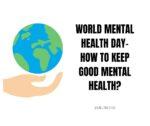Physical effects of stress: Stress impacts us all. You may notice you are busy with your work, while managing finances or when dealing with challenging relationships.
Stress is at every place. While a little stress is fine because a little amount of stress is necessary for our growth but too much stress can make you feel low and sick, both mentally and physically.
The first step of stress is to understand the symptoms of stress and the reasons behind it. But identifying stress symptoms may be more challenging than you think. Most of us are so habitual of being stressed that we often are not aware that we are stressed until we are at the breaking point.
What Is Stress?
Stress is the body’s reaction to toxic situations. When you feel threatened, a reaction arises in your body that allows you to act in a way to stop injury. This reaction is known as the stress response. During stress our heart rate increases, breathing speeds, blood pressure rises and muscles get tightened. You’ve gotten ready to act. This is how you protect yourself.
Also Read: kidney disease and skin conditions.
Stress is felt differently by everyone. What drives stress in one person may be of little concern for another person. Some people are better at being able to handle stress. And, not all stress is destructive. In small amounts, stress can help you perform tasks better and stop you from getting hurt.
Our bodies are developed to handle small amounts of stress. But, we are not prepared to handle long-term, regular stress without unhealthy consequences.
What Are the Symptoms of Stress?
Stress can impact all aspects of our life, including our emotions, behaviors, belief ability, and our physical health. Our body is not immune from stress. But, as well all handle stress differently, symptoms of stress can differ. Symptoms can be ambiguous and may be the same as those driven by medical conditions. So it is necessary to discuss them with your doctor. Symptoms of stress are as follows:
Symptoms of stress include:
- Becoming easily nervous, irritated, and cranky
- Feeling devastated, as if you are losing control
- Having a hard time calming and soothing your mind
- Low self-esteem, and feeling lonesome, helpless, and down
Physical effects of stress include:
- Lower energy
- Frequent headaches
- Diarrhea, nausea, or constipation
- Pain in muscles
- The rapid change in heartbeat and chest pain
- Sleeping issues, Insomnia
- Frequent infections and cold
- Loss of sexual urge
- Cold or sweaty feet and hands
- ringing in the ears
Mental effects of stress include:
- Endless worrying
- unstoppable thoughts
- Failing to focus
- Unsatisfactory judgment
- Being adverse or seeing only the negative side
What Are the Effects of Long-Term Stress?
Ongoing, chronic stress can provoke or heighten many serious health-related problems, including:
- Anxiety, depression, and personality disorder
- Increased blood pressure, heart disease, heart attacks, or strokes
- Eating disorders
- Menstrual problems
- Acne, eczema, and permanent hair loss
- Gastritis, irritable colon, or ulcerative colitis




[…] Also Read: Physical effects of stress. […]